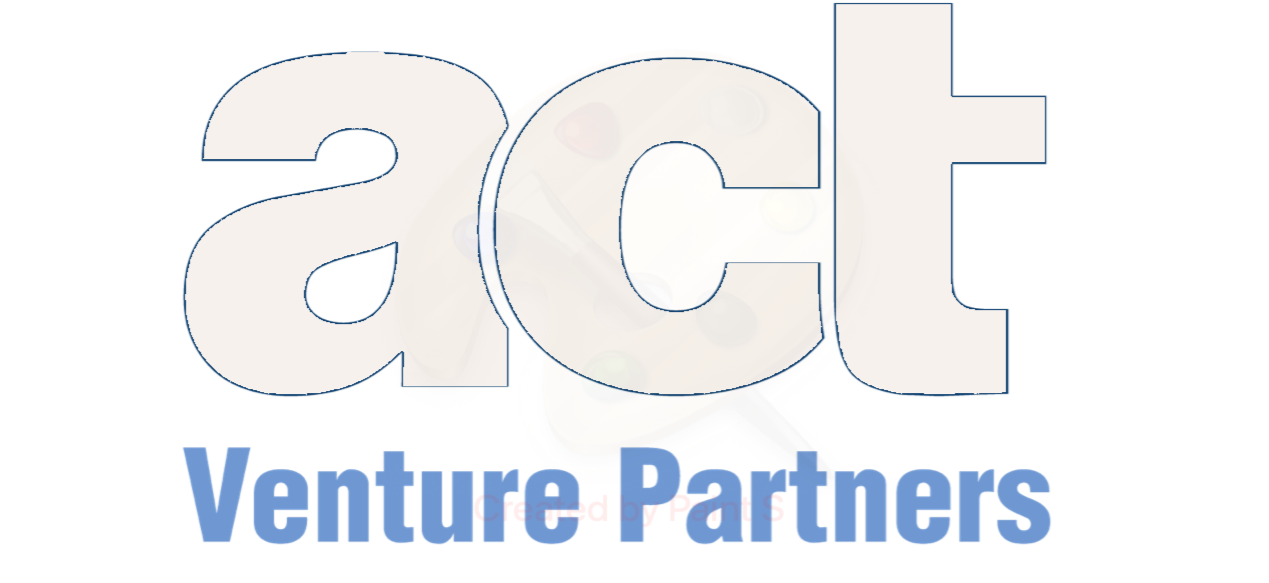VC Industry: Searching for a New Purpose.
What COVID-19 reminds us.
Introduction
COVID-19 reminds us the complex nature of contemporary societal challenges. They emerge and cross all boundaries and borders. Overcoming such challenges necessitates transformation driven by collective innovation, which is accompanied by behavioural changes, new institutions, and good governance. Decision-makers require new policy tools for determining the direction of change, catalysing search efforts, and experimenting under uncertainty. We argue that the VC industry can have an original purpose in this new era, and this can be instrumental in accelerating transformations.
On Grand Societal Challenges
Humankind is faced with a wide range of societal challenges including poverty, climate change, demographic changes with ageing populations, immigration and refugees, new forms of inequalities and increasingly endemic and pandemic diseases like the recent COVID-19. These challenges emerge from economic, environmental, health and societal issues and run across geographical, economic, social and technological boundaries. Some may appear suddenly — as in a pandemic, while others unfold slowly like climate change. Many of them touch the framework of society resulting in behavioural changes. They are, in most cases, path-dependent in nature, hence demand an understanding of the root causes accurately while designing path-breaking radical departures. In all, solutions necessitate collective learning of policymakers, academia, citizens, various sectors and their actors, as well as entrepreneurs. Fostering innovation is vital to overcome the adverse effects of these challenges as well as to create new values. Seeking to engage the world’s most creative minds, by setting the directions and then harmonising their efforts are necessary. To do so, we all need a new understanding of the emerging role of innovation.
The Emerging Role of Innovation
The notion of innovation is highly popular among decision-makers. The consensus is that, it is vital to generate prosperity and to overcome various types of societal challenges. Innovation is a complex phenomenon, and it evolves as an adaptive system and responds to policy objectives.
During the 1960s to 80s, the core role of innovation was to fix market failures as advocated by the neoclassical economic perspective. Government resources mainly allocated for R&D expenditures and policy design primarily focused on knowledge generation and IPR protection.
This era was followed by the rise of evolutionary economics and systems of innovation conceptualisation in the early 1990s. In this new approach, the core role of innovation policy has been to fix systemic structural failures such as weak linkages and absorptive capacity between actors (academia, industry and society) and limited circulation of knowledge to catalyse innovation.
Today, contemporary grand challenges assigned a new role for innovation and that is to push forward transformative changes. Transformations are brought to life by collective learning from a wide array of scientific disciplines, research and industry groups, end-users and governments. In this new era, the direction of change, as well as the rate of change, is a fundamental policy concern. It is not just the technological leap forward that we are after but more importantly, changes in capabilities, institutions, industry structures, regulations, and social policy choices. Orchestrating all these pieces in a harmonised way requires new roles for change agents.
VCs as a Change Agent
VCs have been one of the most important change agents in innovation systems. By setting direction, facilitating and financing entrepreneurship, they significantly accelerated transformations. These transformations changed many aspects of our lives such as how we shop, how we socialize, how we learn and even how we have fun. We have witnessed start-ups become global giants providing their services across continents. VCs have contributed to these transformations by catalysing entrepreneurial activity and creating the dynamism required for “change”.
Major transformations necessitate collaborations among the relevant actors in a structured way. VCs role as a change agent moved them to a gatekeeper position between the policymakers and entrepreneurs. This has been effective in addressing big problems by focusing on the policy objectives with an entrepreneurial spirit. Governments can accelerate realization of policy objectives and generation of added value through VCs.
While global challenges are appealing for a new role for innovation that is driving transformative changes, each change agent should build up new capabilities to adapt itself and sustain its agency role in this new future. Searching for a new purpose will be an ideal starting point for the VC industry.
VC Industry: Searching for a New Purpose
Today, while the grand challenges require patient, long-term and committed capital, VCs can take an active role with a fresh new purpose by catalysing the market-shaping efforts of decision-makers during socio-economic system-wide transformations. Instead of targeting specific geographies or vertical technology domains or sectors, VCs can pick the right challenge with the appropriate societal relevance.
Setting the right direction by identifying and declaring its purpose is vital to guide entrepreneurs towards tackling the correct problems and finding the right problem-solution fit. A purpose-driven approach can generate both public and private values in a sustainable manner.
Among others, a potential list of challenges is outlined to clarify our proposition;
Policymakers should admit that transformations necessitate risk-taking, experimenting, pivoting and investing in alternative, even competing solutions. Those are fundamental skills of VCs. Decision-makers can leverage this expertise to connect the dots, starting from direction setting to identifying the appropriate solutions for their societies. LPs, on the other hand, should acknowledge that flexibility, adaptability and fast learning abilities of the VC industry can pave the way to generate value by exercising a purpose-driven approach. Societal challenges mentioned above will give birth to new opportunities. “Purpose-driven VCs” will serve a fundamental role in tackling change, and delivering sustainable, adaptable solutions. VCs are critical change agents that contribute to society and lead transformation in societal behaviour. LPs and policymakers should pave the way with clear directions that would enable “purpose-driven VCs” to expand their services.
Note. This opinion piece is written with the collaborative effort of ACT Venture Partners team.
References
What COVID-19 reminds us.
Introduction
COVID-19 reminds us the complex nature of contemporary societal challenges. They emerge and cross all boundaries and borders. Overcoming such challenges necessitates transformation driven by collective innovation, which is accompanied by behavioural changes, new institutions, and good governance. Decision-makers require new policy tools for determining the direction of change, catalysing search efforts, and experimenting under uncertainty. We argue that the VC industry can have an original purpose in this new era, and this can be instrumental in accelerating transformations.
On Grand Societal Challenges
Humankind is faced with a wide range of societal challenges including poverty, climate change, demographic changes with ageing populations, immigration and refugees, new forms of inequalities and increasingly endemic and pandemic diseases like the recent COVID-19. These challenges emerge from economic, environmental, health and societal issues and run across geographical, economic, social and technological boundaries. Some may appear suddenly — as in a pandemic, while others unfold slowly like climate change. Many of them touch the framework of society resulting in behavioural changes. They are, in most cases, path-dependent in nature, hence demand an understanding of the root causes accurately while designing path-breaking radical departures. In all, solutions necessitate collective learning of policymakers, academia, citizens, various sectors and their actors, as well as entrepreneurs. Fostering innovation is vital to overcome the adverse effects of these challenges as well as to create new values. Seeking to engage the world’s most creative minds, by setting the directions and then harmonising their efforts are necessary. To do so, we all need a new understanding of the emerging role of innovation.
The Emerging Role of Innovation
The notion of innovation is highly popular among decision-makers. The consensus is that, it is vital to generate prosperity and to overcome various types of societal challenges. Innovation is a complex phenomenon, and it evolves as an adaptive system and responds to policy objectives.
During the 1960s to 80s, the core role of innovation was to fix market failures as advocated by the neoclassical economic perspective. Government resources mainly allocated for R&D expenditures and policy design primarily focused on knowledge generation and IPR protection.
This era was followed by the rise of evolutionary economics and systems of innovation conceptualisation in the early 1990s. In this new approach, the core role of innovation policy has been to fix systemic structural failures such as weak linkages and absorptive capacity between actors (academia, industry and society) and limited circulation of knowledge to catalyse innovation.
Today, contemporary grand challenges assigned a new role for innovation and that is to push forward transformative changes. Transformations are brought to life by collective learning from a wide array of scientific disciplines, research and industry groups, end-users and governments. In this new era, the direction of change, as well as the rate of change, is a fundamental policy concern. It is not just the technological leap forward that we are after but more importantly, changes in capabilities, institutions, industry structures, regulations, and social policy choices. Orchestrating all these pieces in a harmonised way requires new roles for change agents.
VCs as a Change Agent
VCs have been one of the most important change agents in innovation systems. By setting direction, facilitating and financing entrepreneurship, they significantly accelerated transformations. These transformations changed many aspects of our lives such as how we shop, how we socialize, how we learn and even how we have fun. We have witnessed start-ups become global giants providing their services across continents. VCs have contributed to these transformations by catalysing entrepreneurial activity and creating the dynamism required for “change”.
Major transformations necessitate collaborations among the relevant actors in a structured way. VCs role as a change agent moved them to a gatekeeper position between the policymakers and entrepreneurs. This has been effective in addressing big problems by focusing on the policy objectives with an entrepreneurial spirit. Governments can accelerate realization of policy objectives and generation of added value through VCs.
While global challenges are appealing for a new role for innovation that is driving transformative changes, each change agent should build up new capabilities to adapt itself and sustain its agency role in this new future. Searching for a new purpose will be an ideal starting point for the VC industry.
VC Industry: Searching for a New Purpose
Today, while the grand challenges require patient, long-term and committed capital, VCs can take an active role with a fresh new purpose by catalysing the market-shaping efforts of decision-makers during socio-economic system-wide transformations. Instead of targeting specific geographies or vertical technology domains or sectors, VCs can pick the right challenge with the appropriate societal relevance.
Setting the right direction by identifying and declaring its purpose is vital to guide entrepreneurs towards tackling the correct problems and finding the right problem-solution fit. A purpose-driven approach can generate both public and private values in a sustainable manner.
Among others, a potential list of challenges is outlined to clarify our proposition;
- Responsible AI: Solutions that consider privacy, security, interpretability, and ethics so that AI can create new opportunities without a black-box approach.
- Smart Everything: Digitalisation of products and services in cities, factories, urban and rural areas for the benefit of society as a whole.
- Health for All: Solutions to address pandemics, cancer, neurogenerative diseases, rare diseases and many others by early diagnostics, curing, prevention, and especially enhancing the life quality of patients.
- Privacy and Security of Data: Solutions that keep data private and safe while enabling its ever-growing use for good purposes.
- Adaptation to Climate Change: Solutions for the prevention, reduction, mitigation and removal of pollution, developing technologies for low carbon economy and encouraging behavioural changes.
- Sustainable Use of Resources: Solutions for minimising adverse environmental impact of overconsumption and industrial production through renewable energy technologies, recycling systems, green and clean logistics.
- Food Safety: Solutions on mitigating the burdens on food supply chain and protection of biodiversity and enhancing food quality for all.
Policymakers should admit that transformations necessitate risk-taking, experimenting, pivoting and investing in alternative, even competing solutions. Those are fundamental skills of VCs. Decision-makers can leverage this expertise to connect the dots, starting from direction setting to identifying the appropriate solutions for their societies. LPs, on the other hand, should acknowledge that flexibility, adaptability and fast learning abilities of the VC industry can pave the way to generate value by exercising a purpose-driven approach. Societal challenges mentioned above will give birth to new opportunities. “Purpose-driven VCs” will serve a fundamental role in tackling change, and delivering sustainable, adaptable solutions. VCs are critical change agents that contribute to society and lead transformation in societal behaviour. LPs and policymakers should pave the way with clear directions that would enable “purpose-driven VCs” to expand their services.
Note. This opinion piece is written with the collaborative effort of ACT Venture Partners team.
References
- Atkinson, D.R., 2016. Complexity Theory and Evolutionary Economics. OECD Insights.
- Diercks, G., H. Larsen and F. Steward, 2018. Transformative innovation policy: Addressing variety in an emerging policy paradigm. Research Policy, 47.
- European Commission, 2020. A New Industrial Strategy for Europe. COM (2020) 102, Brussels.
- Hausmann, R., and C. Hidalgo, 2013. The atlas of economic complexity: mapping paths to prosperity. Cambridge: MIT Press.
- Kara, O., 2020. Economic Complexity, Human Development and Innovation Capability. Unpublished PhD Thesis.
- Mazzucato, M., 2015. The Entrepreneurial State. Public Affairs.
- Mazzucato, M., 2018. Mission-oriented research & innovation in the European Union. European Commission, Brussels.
- Nooteboom, B., 2007. Social capital, institutions and trust. Review of social economy, 65–1.
- Schot, J. and W.E. Steinmueller, 2018. Three frames for innovation policy: R&D, systems of innovation and Transformative change. Research Policy, 47.


